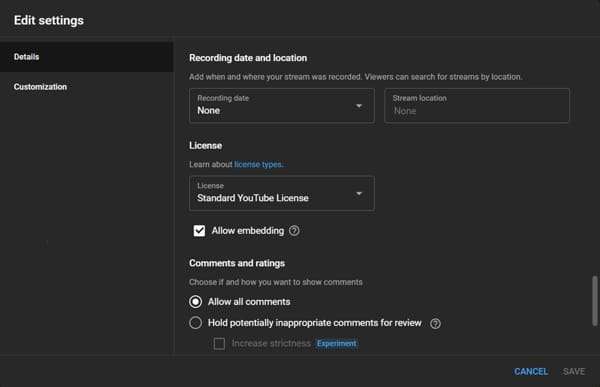YouTube gives creators the option to allow or disable video embedding, which allows others to display your content directly on your website, apps, or platforms. But what is allowed to be embedded beneficially? Let’s find out both sides.
View List
What is YouTube embedding?
Embedding means that your YouTube video or livestream should be played outside YouTube, such as:
- Blog and news sites
- Third-party apps
- Aggregator platform
- IPTV player or smart TV apps
This is done using a <frame> that shows your YouTube player directly without sending youtube.com or YouTube app, your YouTube player directly.
Benefits of allowing embedding –
1. Exposure increased
Embedding exposes your content to audiences who can never search for you on YouTube. For new or growing channels, it is a powerful search tool.
2. Free delivery
Webmasters, blogs and platforms work like free marketing agents, share your video at any cost for you.
3. High view matters
Embedded view (if valid) Count to your YouTube scene. It helps:
Promote ranking in YouTube search
Improve visibility in the “recommended” video
Create social evidence (eg, “1m+ view”)
4. Brand awareness
With channel intro, watermark and overlay, you can strengthen your brand identity, even when the video is played outside YouTube.
Embedding deficiencies
1. Low advertising revenue –
- Show less or no advertisements
- Leave mid-roll or skipable advertisement
- Results in low CPM (cost 1,000 times)
- It can reduce overall earnings, especially if embedded scenes dominate or due to lower CPM.
2. Loss of control
You cannot control where your content appears. It can be possible:
- Shown next to inappropriate or spammy material
- Clickbait should be embedded in websites
- Dilute your brand authority
3. Weaker Engagement –
Your Viewers are starting to watch embedded videos:
- They are less likely to like, comment, or subscribe.
- May not visit your channel or watch more content.
- Don’t interact with community posts or playlists.
- This weakens the relationship with your audience.
When Should You Allow Embedding?
Scenario Embedding Advice
- New channel, low subs ✅ Allow embedding for growth
- Growing channel, mixed goals ⚖️ Allow selectively, track performance
- Mature, monetized channel ❌ Disable if revenue is a priority, but you may lose competition.
Smart Middle Ground Strategies
Enable Embed, Add Watermark
Include your channel logo or “Subscribe on YouTube” in the video.
Teaser Embed
Only embed short trailers or intros. Prompt viewers to “Watch full video on YouTube.”
Track Referrers
Use Google Analytics UTM links or short URLs in descriptions to track where viewers come from.
Manually Allow Only Trusted Sites
If you’re using an API or custom embed player, allow listing only known domains.
How to Disable Embedding on YouTube?
Go to YouTube Studio → Content
Click your video or live stream
Click “More Options.”
Under License and distribution, uncheck “Allow embedding.”
Click Save
Done! Your video can no longer be embedded outside YouTube, it is also excluded from the freelivetv.org website and app.
Final Thoughts –
Allowing embedding can be a double-edged sword. If you’re aiming for:
- Maximum reach, be above in competition. exposure, and discovery — allow embedding.
- Stronger control, monetization, and channel growth via engagement — consider disabling it.
Another Benefit –
Your channel will also be live on the FreeLiveTV.org website and the FreeLiveTV smart TV application with your YouTube ads. So you will not lose any ad revenue. But CPM will be lower for the same viewer, now it is your choice.
Contact us to remove your channel from freelivetv.org website and smart TV, or you can disable, embed feature from your YouTube live broadcast.


